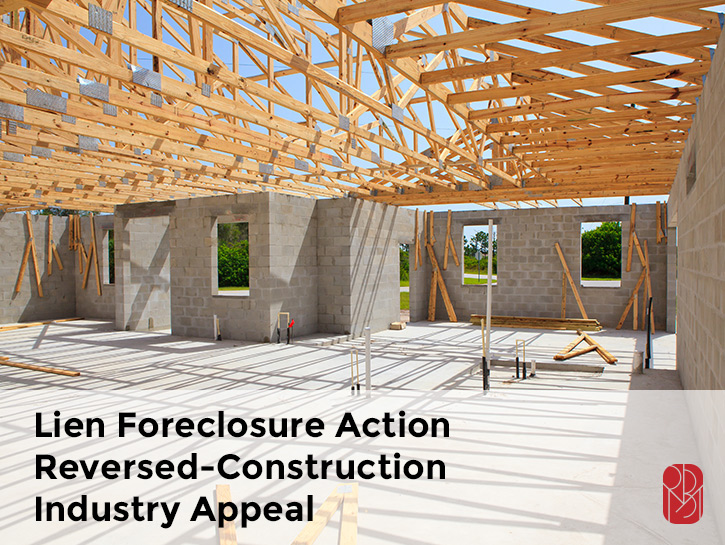Grupo de la industria de la construcción
GRUPO DE LA INDUSTRIA DE LA CONSTRUCCIÓN
ÁREA DE PRÁCTICA / GRUPO DE LA INDUSTRIA DE LA CONSTRUCCIÓN
La gestión de riesgos está en el corazón de la filosofía de nuestro grupo de la industria de la construcción. Esa filosofía entra en juego cada vez que nuestros clientes nos piden ayuda, ya sea durante la planificación del proyecto y la selección del cliente, contratación, diseño y construcción, cierre del proyecto o resolución de disputas. Combinando el conocimiento de los hechos, los contratos y la ley con décadas de experiencia y sentido común, ayudamos a nuestros clientes a ver la situación tal como es y a tomar decisiones sobre cómo manejar esa situación de manera consistente con los mejores intereses del cliente tal como ellos los definen.
ABOGADOS DE GRUPOS DE LA INDUSTRIA DE LA CONSTRUCCIÓN EN UTAH
Trabajamos con nuestros clientes en cada etapa del proceso de diseño y construcción.
Arquitectos, ingenieros, propietarios, desarrolladores y contratistas
Cada participante en el diseño y la construcción tiene derechos y responsabilidades específicos del proyecto e intereses distintos pero en gran medida compatibles. Saber dónde y cómo estos factores convergen o divergen es fundamental para comprender los riesgos que enfrentan nuestros clientes de la industria y cómo ayudar a administrar o eliminar estos riesgos. Habiendo representado a clientes en prácticamente todas las categorías de participantes del proyecto, entendemos o podemos discernir rápidamente los factores que impulsan la mayoría de los problemas del proyecto hasta el final de brindar un asesoramiento sólido a nuestro cliente.
Institucional, Industrial, Comercial o Residencial
Si bien los riesgos en el diseño y la construcción son generalmente muy similares de un proyecto a otro, no hay dos proyectos iguales. Comprender los principios legales y contractuales que podrían aplicarse a un tipo específico de proyecto es una habilidad que se adquiere. Habiendo representado a una variedad de clientes en proyectos que van desde residencias unifamiliares hasta construcción pesada e industrial, hasta instalaciones de investigación y alta tecnología, entendemos dónde se cruzan estos principios básicos con los desafíos únicos de los proyectos más complejos.
Gestión de riesgos
El diseño y la construcción son empresas de alto riesgo. Los profesionales experimentados del diseño y la construcción saben que la gestión de estos riesgos juega un papel fundamental en el éxito de cualquier proyecto. Desde adquisiciones, contratos y seguros hasta proyectos de resolución de problemas y manejo / resolución de reclamos, el Grupo de la Industria de la Construcción de Richards Brandt está listo, dispuesto y capaz de ayudarlo a mantener el control de la situación.
Procuramiento del Gobierno
La contratación de servicios de diseño y construcción por parte de entidades gubernamentales federales, estatales y locales se rige por una miríada de estatutos, reglas y regulaciones. La intención de estas leyes es promover la competencia y garantizar la igualdad de condiciones para quienes persiguen un contrato con el gobierno. Estas leyes cambian con frecuencia y los tribunales hacen cumplir estrictamente sus requisitos. Mantenerse al tanto de estas leyes es una prioridad para nuestro Grupo de la Industria de la Construcción y podemos ayudarlo rápidamente cuando la contratación pública no se haya llevado a cabo como debería haber sido.
Disputas de diseño / construcción: los sospechosos habituales
Decir que la construcción es una industria intensiva en contratos sería quedarse corto. Los derechos y responsabilidades de los participantes del proyecto se definen mediante contratos y el proceso se gestiona a través de estos contratos. Y en cualquier disputa de construcción, el análisis legal siempre comienza y generalmente se resuelve de acuerdo con los contratos de las partes. En pocas palabras, los contratos de su proyecto son fundamentales para administrar los riesgos de su proyecto y nuestros abogados de construcción están aquí para ayudarlo a lidiar con los problemas de contratación, desde la redacción y revisión hasta la interpretación y ejecución.
ACTUALIZACIONES RECIENTES DE LA LEY DE GRUPOS DE LA INDUSTRIA DE LA CONSTRUCCIÓN
ABOGADOS DEL GRUPO DE LA INDUSTRIA DE LA CONSTRUCCIÓN EN RICHARDS BRANDT EN SALT LAKE CITY, UTAH
Defectos de diseño / construcción
La industria ha experimentado un fuerte aumento en las reclamaciones por defectos de diseño y construcción en la última década. A medida que surgen problemas antes, durante o después de la construcción, nuestros abogados tienen la experiencia para evaluar la exposición al riesgo de nuestros clientes. Como cada proyecto es único, también lo es el análisis de cada uno de nuestros clientes.
Gravámenes y fianzas
Recibir un pago puede ser un desafío para quienes trabajan en la industria de la construcción. Manejar los problemas de gravámenes y fianzas puede ser difícil y urgente. Nuestros abogados experimentados tienen la experiencia para ayudarlo a lidiar con estos y otros aspectos de la administración de la construcción.
Resolución de conflictos
Con múltiples participantes, contratos, hechos y problemas técnicos, las disputas de la industria de la construcción se encuentran entre las más complejas y costosas de resolver. Controlarlos y resolverlos temprano es fundamental.
Como su abogado, lo ayudaremos a superar estas complejidades y la postura que acompaña a cualquier disputa y llegar al meollo del asunto. Y, una vez allí, lo ayudaremos a comprender y evaluar mejor sus riesgos reales y a diseñar alternativas rentables para su resolución.
En aquellos casos en los que no somos su abogado, brindamos servicios neutrales rentables, como mediador o árbitro, para ayudarlo a usted y a las otras partes a resolver su disputa antes de que los honorarios de abogados y expertos se salgan de control.
relaciones Gubernamentales
Cuando se trata de relaciones gubernamentales, Richards Brandt ha estado a la altura de las profesiones del diseño y la industria de la construcción durante décadas. Los problemas que enfrenta la industria de la construcción pueden ser complicados. Pero eso no quiere decir que resolverlos ante la legislatura y las agencias gubernamentales deba ser complicado. Nuestro Grupo de la Industria de la Construcción ha aprendido que la mejor manera de afectar la legislación es involucrar a las partes interesadas y los tomadores de decisiones en una discusión franca y transparente que conduzca a una buena política pública y una solución legislativa eficaz.
PREGUNTAS FRECUENTES (FAQS)
BUSINESS TRANSACTIONS & CORPORATE GOVERNANCE / FEATURED FAQS
P: ¿Es una LLC o una corporación adecuada para mi negocio?
Answered by:
A: To decide which entity is right for you, we look at: liability, taxation, and maintenance. Both corporations and LLC’s have limited personal liability—this means that owners are usually not responsible for business debts. However, corporations and LLC’s are taxed very differently—corporations are classified as a separate taxable entity, whereas LLC’s are typically taxed as a pass-through entity (unless you choose otherwise). And corporations and LLC’s have different levels of maintenance—LLC’s have fewer reporting requirements and can operate solely with members acting as the managers. Conversely, corporations are required to hold certain annual meetings, keep certain records, and appoint boards and officers to manage the company for the stockholders. Every situation is unique so we recommend that you consult with an attorney in making your decision. Contact our firm, Richards Brandt, if we can help you decide which entity is right for you.
P: ¿Es una LLC o una corporación adecuada para mi negocio?
Answered by:
A: To decide which entity is right for you, we look at: liability, taxation, and maintenance. Both corporations and LLC’s have limited personal liability—this means that owners are usually not responsible for business debts. However, corporations and LLC’s are taxed very differently—corporations are classified as a separate taxable entity, whereas LLC’s are typically taxed as a pass-through entity (unless you choose otherwise). And corporations and LLC’s have different levels of maintenance—LLC’s have fewer reporting requirements and can operate solely with members acting as the managers. Conversely, corporations are required to hold certain annual meetings, keep certain records, and appoint boards and officers to manage the company for the stockholders. Every situation is unique so we recommend that you consult with an attorney in making your decision. Contact our firm, Richards Brandt, if we can help you decide which entity is right for you.
P: ¿Es una LLC o una corporación adecuada para mi negocio?
Answered by:
A: To decide which entity is right for you, we look at: liability, taxation, and maintenance. Both corporations and LLC’s have limited personal liability—this means that owners are usually not responsible for business debts. However, corporations and LLC’s are taxed very differently—corporations are classified as a separate taxable entity, whereas LLC’s are typically taxed as a pass-through entity (unless you choose otherwise). And corporations and LLC’s have different levels of maintenance—LLC’s have fewer reporting requirements and can operate solely with members acting as the managers. Conversely, corporations are required to hold certain annual meetings, keep certain records, and appoint boards and officers to manage the company for the stockholders. Every situation is unique so we recommend that you consult with an attorney in making your decision. Contact our firm, Richards Brandt, if we can help you decide which entity is right for you.
BUSINESS TRANSACTIONS & CORPORATE GOVERNANCE – CASE STUDIES
Utah Manufacturing Company Needed Employment Contracts For Key Staffers
Utah Construction Company Needed Planning For Business Growth & Protection
Utah Family Enterprise Needed Guidance and Representation to Sell Business
REVIEWS
CDDC Announce 2018 Award Winners
The 4th Annual Intermountain Construction Defect and Dispute Conference was held Friday, February 9th, 2018 at which the organizers recognized five professionals in the community for their contributions in the construction industry.
Lincoln Harris received the Attorney of the Year Award honoring him for his level of excellence and longtime service in the field of construction law. Besides this award, he was acknowledged for his work in local government and solving the legislative issues facing his clients. Lincoln’s further credits, which were pointed out at the ceremony, are representing the Appalachian Education and Defense Funds.

Enforcing Electronically Signed Construction Contracts
August 2016
Contractors, subcontractors and suppliers understand that the usual course of construction requires a paper trail of documents beginning with plans, specifications, drawings, bids and proposals, and concluding with inspections, punch lists, final payment and warranties. Moreover, standard contract clauses and simple prudence require those in the construction industry to retain documents for years. The advantages of storing documents and conducting all related business electronically is obvious. But, are electronically signed contracts enforceable?
In 2000 Utah’s legislature passed the Uniform Electronic Transactions Act. The statute permits the use of electronic documents and signatures in a transaction if both parties agree. Electronic contracts and signatures “may not be denied legal effect or enforceability solely because…in electronic form.” Utah Code Ann. § 46-4-201(1), (2). If a law requires that a record be in writing, or that a signature be obtained, an electronic record or signature is acceptable. Id., at (3), (4). For example, in Anderson v. Bell, 2010 UT 47, the Utah Supreme Court held that electronic signatures on a petition to place an unaffiliated candidate’s name on the statewide ballot for governor satisfied the requirement under Utah’s Election Code for such a petition to be signed by 1,000 registered voters. Id., ¶ 26. In judicial proceedings, the law requires a party to use the original record of a transaction to prove the terms of the transaction. The Uniform Electronic Transactions Act addresses this requirement by stating that an electronic record can suffice as an “original” if it “accurately reflects the information set forth in the record after it was first generated in its final form as an electronic record or otherwise” and “remains accessible for later reference.” Utah Code Ann. § 46-4-301(1). “In a proceeding, evidence of a record may not be excluded solely because it is in electronic form.” Utah Code Ann. § 46-4-302.
To improve the chances that electronically signed contracts are enforceable, and can be admitted as evidence of the terms of the parties’ transaction, contractors should amend their form subcontracts. If you have any questions regarding the enforceability of electronic documents in Utah, or need help in drafting suitable contract clauses, contact Jack W. Reed at Richards Brandt Miller Nelson.
Lien Foreclosure Action Reversed-Construction Industry Appeal
Zack Peterson
February 2015
Pentalon v. Rymark
http://www.utcourts.gov/
The Court of Appeals reversed the district court’s grant of summary judgment in favor of the lender in a mechanics’ lien foreclosure action. The district court ruled that excavations for footings and foundations were not sufficient improvements to constitute commencement of work under the 2008 version of 38-1-5.
As a matter of law, the Court of Appeals determined the contractor’s excavation work, which included excavations in specific shapes through the use of heavy machinery on site, was sufficient to constitute commencement of work under the statute. Davis, J. dissented on the grounds that he would not rule as a matter of law, and he believed issues of fact predominated.










CDDC Announce 2018 Award Winners
Enforcing Electronically Signed Construction Contracts
Lien Foreclosure Action Reversed-Construction Industry Appeal